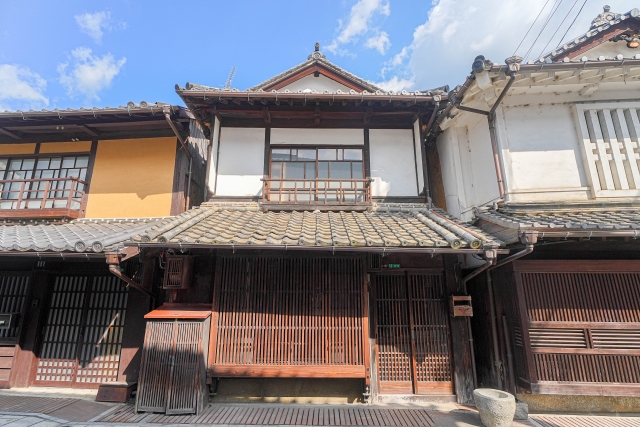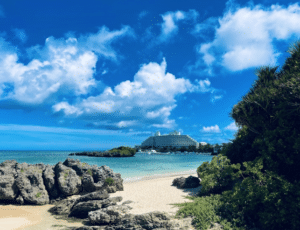
[July 2024 ] Buying and Renovating Akiyas in Japan: Loan Options for Foreigners
As reported by the Ministry of Internal Affairs and Communications on April 30, 2024, the number of akiyas (abandoned houses/vacant houses) in Japan has reached a record high of 9 million, now making up 13.8% of all housing in the country. Listings on akiya banks (akiya listing services) are increasing amid the amendment of the Akiya Law, which promotes akiya utilization and revitalization through new programs and subsidies, while imposing stricter penalties on neglected properties. More buyers, especially those seeking to move to the countryside or start a vacation rental, are drawn to the opportunity of finding a gem in an akiya. However, unlike other properties, getting a mortgage for an akiya can be challenging. You often need to pay in cash because akiyas lack sufficient collateral value for traditional loans due to their age, condition, and remote locations.
In recent years, a growing number of banks have started offering “akiya loans,” specialized mortgages for the purchase, renovation, and demolition of akiyas. These loans do not require collateral or a guarantor and are based solely on the applicant’s personal credit. Some banks also partner with local governments to provide lower interest rates for buyers purchasing akiyas from local akiya banks. This article explores whether foreigners can use loans to buy or renovate an akiya and lists some of the currently available akiya loans.
Jump to:
Can You Get a Mortgage to Buy an Akiya?
Can a Foreigner Take Out an Akiya Loan?
Can I Use Akiya Loan for a Vacation Rental/Airbnb/Income Property?
List of Akiya Loans available as of July 2024
Can You Get a Mortgage to Buy an Akiya?
Obtaining a regular housing loan for an akiya or a kominka is difficult because they often lack collateral value. Many older akiyas and kominkas are not up to code, built illegally, or the land they are built on does not comply with road access requirements, making them unsuitable for rebuilding or reconstruction. These properties often have low appraised values due to their age, condition, or location. However, recognizing the demand for akiyas as alternative residences or income properties, banks have recently introduced dedicated akiya mortgages. While interest rates are higher than regular housing loans, these loans do not require collateral or a guarantor, allowing you to purchase and renovate an akiya into your dream home or an income property.
Can a Foreigner Take Out an Akiya Loan?
If you are a permanent resident in Japan with a stable income, you should have no trouble taking out an akiya loan. Without permanent residency, it can be more challenging. Some akiya loans explicitly require applicants to be either Japanese nationals or permanent residents, but many do not, so it’s worth inquiring. Akiya loans typically prioritize applicants with stable incomes. If you are a non-permanent resident, our list of banks offering housing loans to non-PR foreigners might also be helpful.
Can I Use Akiya Loan for a Vacation Rental/Airbnb/Income Property?
Our research indicates that no akiya loans currently allow the purchase of an akiya for investment purposes. However, many akiya loans can be used to renovate the property and turn it into an income property, such as a vacation rental/Airbnb, or even a regular rental. These specific loans are highlighted in our list of akiya loans below. Additionally, in March 2024, Airbnb announced a partnership with a loan provider to offer “home-sharing loans” through local banks. Since these loans are non-collateral small business loans, they can be used for vacation rental projects.
List of akiya loans available as of July 2024
Here is a list of akiya loans currently offered as of July 3rd, 2024. This list is not exhaustive; we have specifically selected loans that can be used for purchases. More options are available if you’re only looking to finance renovations or demolitions. While many loans can be used for properties across Japan, most lenders are regional banks requiring applicants to live or work within their operational area:
| Location of the akiya | Bank Name | Usage and conditions | Financing Amount | Repayment Period | Interest Rate | URL |
|---|---|---|---|---|---|---|
| Hakone, Nakai, Matsuda towns in Kanagawa prefecture only | Sagami Credit Bank | – Purchase and renovation – The akiya must be listed on one of the town’s Akiya Banks – For self-use only | 1 million yen to 100 million yen | 2 to 35 years | 0% interest rate for the first 3 years. Variable interest rate for the rest of the period, starting from 2.475%/year | Sagami credit bank |
| Anywhere in Japan | Fukuoka Bank | – Purchase (for self-use only) – Renovation (can be used for income properties) | 100,000 yen to 5 million yen | 6 months to 10 years | Variable interest rate starting from 2.80%/year 0.3% discount on the interest rate if the applicant receives akiya subsidies from the bank’s referral. | Fukuoka bank |
| Yamaguchi, Hiroshima, Okayama prefectures only | Momiji Bank | – Purchase – Renovation – Demolition | 100,000 yen to 5 million yen | 6 months to 10 years | Fixed interest rate starting from 2.50%/year | Momiji Bank |
| Anywhere in Japan | Risona Bank | – Purchase – Renovation – Demolition (for self-use only) | 100,000 yen to 10 million yen | 1 to 15 years | Variable interest rate starting from 3.475%/year | Risona Bank |
| Yamaguchi, Hiroshima, Fukuoka prefectures only | Yamaguchi Bank | – Purchase (for self-use only) – Demolition (for self-use only) – Renovation (can be used for income properties) | 100,000 yen to 5 million yen | 6 months to 10 years | Fixed interest rate starting from 2.50%/year | Yamaguchi Bank |
| Anywhere in Japan *Applicants must reside in either Kyoto, Osaka, Hyogo, Shiga, Nara, or Aichi prefectures. | Kyoto Bank | – Purchase – Renovation – Demolition (for self-use only) | 300,000 yen to 30 million yen However: – for purchases, up to 10 million yen – for renovation, up to 20 million yen | 1 to 15 years | Variable interest rate starting from 2.175%/year (Fixed interest rate also available) | Kyoto Bank |
| Anywhere in Japan *Applicants must reside in either Kyoto, Osaka, Hyogo, or Wakayama prefectures. | Ikeda Senju Bank | – Renovation (can be used for vacation rental properties) | 100,000 yen to 5 million yen | 6 months to 10 years | Fixed interest rate starting from 3.475%/year | Ikeda Senju Bank |
| Anywhere in Japan | Shiga Bank | – Purchase (for self-use only) – Demolition – Renovation (can be used for income properties) | 100,000 yen to 15 million yen | Up to 20 years | Fixed interest rate starting from 2.875%/year Discounts available for members and online contract | Shiga Bank |
| Anywhere in Japan *Applicants must reside or work in either Osaka, Hyogo, or Wakayama prefectures. | Kiyo Bank | – Demolition – Renovation (can be used for regular rentals and vacation rentals) | 100,000 yen to 5 million yen | 6 months to 10 years | Fixed interest rate starting from 1.975%/year 0.2% discount on the interest rate with an akiya certificate from a local government | Kiyo Bank |
| Anywhere in Japan Applicants must reside or work in Tokyo or the bank’s operation area. | Musashino Bank | – Purchase – Renovation – Demolition (for self-use only) | 100,000 yen to 10 million yen | 6 months to 15 years | Fixed interest rate starting from 2.675%/year Up to 1.0% discount on the interest rate for loyal customers | Musashino Bank |
Conclusion
The rise in the number of akiyas in Japan presents a unique opportunity for those interested in purchasing and renovating these properties. While traditional mortgages may not be an option due to the low collateral value of akiyas, specialized akiya loans have emerged to meet this demand. Both locals and foreigners, particularly permanent residents, can benefit from these loans. With various options available, potential buyers can find a suitable akiya loan to transform these abandoned houses into homes or income-generating properties.
* The most common fixed interest rate among home mortgages with a repayment term of 21 – 35 years and over 10% down payment as of February 2024, according to the Japan Housing Finance Agency.
*Information as of July 2024. For the latest conditions of the loans, please refer to the banks’ websites.



